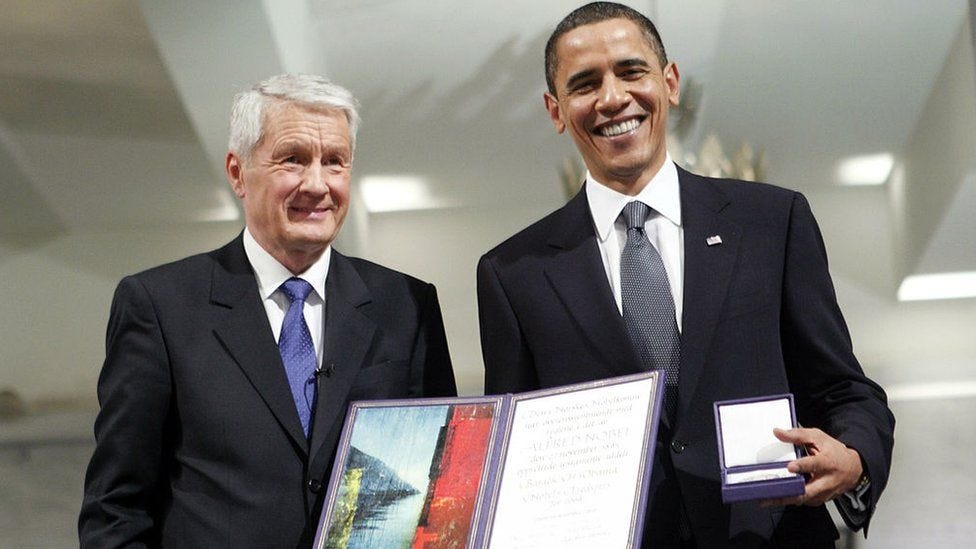Dr. Mann's Unstoppable Humanity
How Interstellar's Dr. Mann is a painfully Accurate Mascot for Humanity
Those who know me personally are well acquainted with my love and infatuation with the movie Interstellar. I make a ritual of watching this film bi-monthly and have seen it nearly 30 times. When it comes to Interstellar, I do not struggle thinking of a favorite movie, or of a movie that can be called ‘perfect’ without being accused of hyperbole. With 30 watches comes a deep study and appreciation of each line, facial expression, lens change, and score volume. I find this movie to be intensely profound as it offers a religious-like realization of understanding for our humanity, our war with sin in a fallen world, our desires and aspirations, and the non-quantifiable attributes of metaphysical anomalies such as love. One cannot deny the massive fame brought to Hanz Zimmer from his work on this film; though his contributions to Dune, Dunkirk, Pirates of the Caribbean, and others have been notable, nothing has caused him to receive as much notoriety as Interstellar’s score. One should only listen to the tracks ‘No Time for Caution’ or ‘Cornfield Chase’ to understand just how much emotional real estate Zimmer parked in the score. This video of Zimmer live is not essential to this reading, but I believe essential to understanding how music can move the most cold and calculated people (thinking of myself) to tears.
I want to turn our attention to a man in this film, and his representation of humanity: Dr. Mann. Mann is played by Matt Damon and offers a frustrating, contradicting, and sinister presentation of human egoism.
Some brief context: Humanity has long needed a new home planet, so NASA sent 12 individuals out on the ‘lonliest mission in all of humanity’. Each individual was assigned a planet containing the potential to support human life. They were to land on the planet, assess its attributes, and if habitable, press a special button to relay to Earth that their planet was suitable. If their planet was not suitable then, as Doyle puts it: ‘Hence the bravery’.
The film notes that Dr. Mann was the leader of the group, of high rank and good report, but Mann reveals himself to be not just selfish, but selfish to a such a degree as to jeopardize the continuity of the human species. Incapable of reconciling how his own self preservation is not only ironically what would kill him, but what could end humanity. Dr. Mann’s actions could cost more lives than Hitler, Mao, or any combination of morally ravaged humans from history, yet he is so easy to sympathize with in the film. Dr. Mann landed on his planet, discovered that the planet could not sustain human life, and despite the data, activated his relay beacon telling NASA on Earth that his planet was indeed viable. Mann lied about biometrics, atmosphere composition, temperature, and biomes. Later after being rescued, Mann reveals to Cooper (Matthew McConaughey) that he never quite reconciled with the fact that he would never get saved; that no matter what he would have pressed the button. The critical note to make is that Cooper and his team had only enough fuel to visit one more planet, the previous one had turned out to be unsustainable. There are two promising options, but they decide to use the last of the fuel (and time) to go to Mann’s Planet, making this call based on all the false information being relayed by Mann. Essentially, if Mann’s Planet is not sustainable, the entire mission is in jeopardy and along with it the human race.
The remarkable thing about this character is not his selfishness and egoism, no, as most people have yet to obtain the mental capacity to navigate the moral landscape outside of their immediate desires and priorities such as family, job, and self. It is that Dr. Mann expresses the importance of thinking beyond oneself and considering the species as whole that makes his departure from professionalism so startling. Dr. Brand, a scientist at NASA who has coordinated all of the Lazarus missions and commissioned Cooper and his team is revealed to have been lying about the possibility to save the rest of the humans left on Earth. Brand only said that to persuade Cooper to go on the mission, knowing deep down that there was no hope for humanity. When this lie is revealed to the team in front of Dr. Mann, Mann defends Brand saying ‘he was prepared to destroy his own humanity in order to save the species; he made an incredible sacrifice-’.
These scenes encapsulate the back to back delusional philosophy of Dr. Mann, and his all too real humanity. A man who can regurgitate the essential utilitarian doctrines, bringing the most well being to the most people, but never at the cost to himself. Mann’s beliefs and defenses of Brand are justifiable, and even a state of observations that I hope to achieve some day. Yet Mann brings all these philosophical desires back to reality, to the blinding shades of our own egoism. Mann is correct when he says we have not evolved to make moral calculations past our own immediate relational environments. Yet Mann appears to exclude himself from this inhibition, taking on a personality of calculated precision and utilitarian ethics. He acts as if he himself has transcended the relational barriers and egoistic roadblocks, but in reality he is the only example in the film of a destructive self, terminating humanity for his own existence to carry on for a few minor years (if that!).
I hesitate to say, but I see a lot of Mann in myself. I like to appear calculated, I argue for utilitarian ethics within the population, I attempt psychoanalysis on myself and others, and I often look down on the emotional barriers that all to often hinder our choices. Yet more often than not, I find myself choosing a rather convenient and comfortable option, and sometimes at the expense of others. I do not think I am the only one guilty of these egoistic tendencies. I believe Dr. Mann to be one of the more human and authentic characters in Interstellar, representing our inner egoistic and hedonistic subliminal cravings: desiring to be calculated and observant; wanting to contribute to the world; and being willing enough to sacrifice personal joys for others, yet when the chips are down and the stakes are high, these desires do not take a back seat, they exit the vehicle entirely. Is it not strange that these egoistic desires are so central to human nature that they even brushed up against Jesus’ conscious in the Garden of Gethsemane?
In the Gospel according Matthew, Jesus is seen desiring His own self preservation, concerned of what is to come, even though it is guaranteed and foreknown to save all of humanity: ‘And going a little farther he fell on his face and prayed, saying, “My Father, if it be possible, let this cup pass from me; nevertheless, not as I will, but as you will” (Matt. 26:39). What separates Jesus from humankind is not the lack of temptations and desires to come His way, but His reaction to these invitations. More so than heal, perform miracles, or walk on water, the action most foreign to humanity was His rejection of His own well being for the sake of others. Dr. Mann and Jesus could not be further apart in this sense. Egoism and self preservation reared its head towards Christ, but it fully inhabits us, no matter how desperately we try to purge it out of ourselves. No doubt Dr. Mann wanted to embody his utilitarian philosophy, no doubt he wanted to be a selfless stoic mimic of Dr. Brand, no doubt he wanted these things, but doubtful he even came close. Dr. Mann is an easily hated and rejectable character in Interstellar, but I believe we should pity him. He is nothing more than a slave to his humanity, his evolutionary instincts to preserve himself over the species. While other less evolved animals sacrifice themselves often, it is a miracle to see a human act out of their own selfish desires. For honey bees, octopi, ants, lions, whales, and species of all types, it is rather expected to be altruistic. How do we react when humans are altruistic? Well we award them the medal of honor or the Nobel Peace Prize. I am not saying these awards are not merited, but I do want to draw attention that altruistic and selfless acts merely expected among other species are rare and celebrated occasions in ours.
Dr. Mann wanted to tap into the selfless sacrificial well that only Christ has had on this Earth, when he was in his Garden of Gethsemane on Mann’s Planet (as the movie names the planet) the cup would not pass from him, so he pushed it away and along with it the chances of humanity’s continuity. Dr. Mann is a sad reminder of our limitations, a shocking but peculiar spectacle for those desiring to see our mind’s shortcomings. A friend of mine and professional film reviewer, Jon Uptagrove noted to me that Christopher Nolan made the first name of Mann to be Hugh. Hugh Mann is as close to human as anyone else in the film, and Nolan knew this. As much as we want to alienate ourselves from Mann, we just cannot shake away our nature. As daring as it is to say, to be more compassionate and selfless would be alien.
To add more anguish on Dr. Mann, it is worth noting that the individuals assigned to the Lazarus Missions were picked due to their lack of connections on Earth: no family, friends, or connections that could distract them from their work. However with Cooper, who performs some rather daring tasks to get back home in the film, it is clearly to return and help his family, particularly his daughter Murph. Mann has no connections: no friends or family, no lovely daughter to persuade his emotions. So when Mann drains the last of Cooper’s team’s fuel, he is saving only himself. Mann acknowledged that humans cannot comprehend sacrificing themselves to save anyone beyond their immediate social environment; Mann could not comprehend sacrificing himself for anything beyond himself, probably because ‘himself’ is all he had…
The fall humankind in history past had an effect the reverberated throughout all the world, touching all realms physical and metaphysical. But humankind is the pinnacle of God’s creation, His final project. Humans strangely balance a paradoxical tightrope of being the part of creation furthest from God, yet also closest to God through the work of Christ. Other parts of creation do not aspire to genocide, war, or anarchy, only humans have accomplished these feats. Yet it is also humans who have the capacity to know God through Christ. Was it just evolutionary shortcomings that plagued Dr. Mann, or is there something sinister in the nature of humanity that gets too much stage presence when times are critical? Dr. Mann’s egoism is not something we can avoid out right, but it is something we can be aware of and spot within ourselves. We can apply an effort to purge it from our conscious; even if we will never fully succeed until the return of Christ. Do not place yourself above Dr. Mann, we often become all too seduced by the lies of our greatness we tell ourselves. The easiest way to ensure that egoism and hedonism similar to Mann can take strong root in your identity is to think ‘I could never be that evil’, maybe not, but you can be that human.





